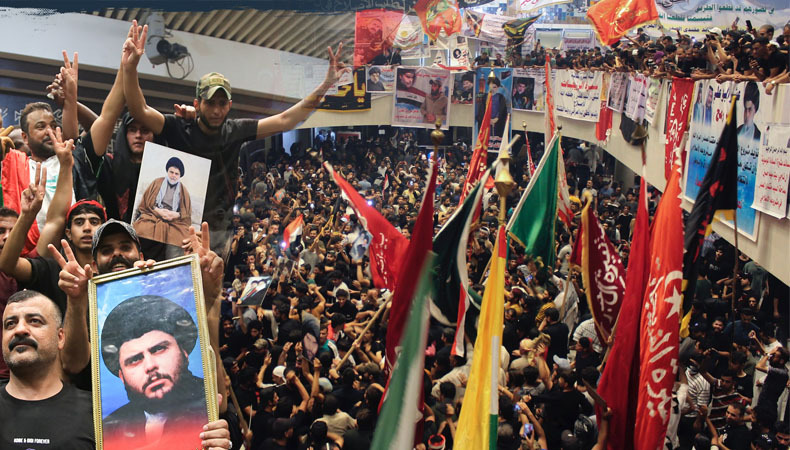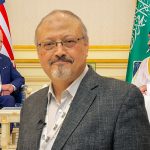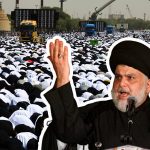Iraqi protesters demonstrate anger and hope


The powerful Shiite Muslim cleric and political game-changer Moqtada Sadr’s supporters are leading the major sit-in as they compete with the Coordination Framework, a rival Shiite group supported by Iran.
Demonstrators have repeated Sadrist rhetoric during the at times carnival-like marches, but they have also expressed fury at a broken political system, subpar public services, and the fragile economy of the oil-rich but corrupt nation.
Iraq is still without a new president or prime minister nearly 20 years after a US-led invasion deposed Saddam Hussein and 10 months after the most recent elections.
Four of the protesters were interviewed by AFP on their motivations for joining the large-scale protest camp, however several of them declined to give their complete names.
In order to travel four hours from the primarily Shiite south of Iraq to the legislature in the customarily extremely protected Green Zone government district, 43-year-old Ali Mohammed Oklah left his wife and three children behind.
Related Posts
The high school teacher of Islamic studies declared, “I’m revolting to free my country from the fangs of the corrupt. I also want Iraq to adopt a new constitution and a presidential government.
He boasted of his group, “we the Sadrists,” and its prior incursions into the Green Zone, the prime minister’s office, and the legislative chamber.
He emphasised the “revolutionary ideology” of the group centred on fiery cleric Sadr, who formerly led an anti-US militia and has millions of ardent followers, saying, “I’ve joined them all and I’m proud of it.” “The complexity of the struggle for reform” in Iraq was acknowledged by Oklah.
He emphasised, however, his belief that Sadr is under “divine protection” and has a “loyal public base, which is like the arm with which he strikes at the dens of the corrupt.” Umm Ali, 47, is demonstrating within the legislative chamber while leaning back in a chair with her husband, siblings, and nephews.
Using the honorific title of Sadr, whose black turban denotes him as a descendent of the Prophet Muhammad, she pledged they would remain “until the Sayyed tells us to withdraw.” The mother of six girls and one boy had a picture of Moqtada on her lap.
The woman, who resides in Sadr City, a working-class neighbourhood in Baghdad named for the preacher’s late father, a respected cleric, claimed that “He is the only one with honesty.” She stated that she wanted to “recover the country.” The entire nation has been taken. She claimed that ever since her spouse was hurt in an explosion in Baghdad in 2009, he has remained incapacitated.
She stated, “He was a civil servant, he was just leaving work.” Since that time, we have not gotten paid. She claimed that her son began working after finishing elementary school to help support the family.
Young people cannot find employment, she declared. Even people with more education end up working as porters or day labourers. What do they deserve—this?
Rassul Achour, 20, has driven demonstrators around in his three-wheeled motorbike taxi while donning shorts, flip-flops, and sunglasses in the sweltering July heat. He only charges roughly 30 cents in US dollars for the tuk-tuk journey, explaining that “it’s symbolic, just for the gasoline.”
He barely makes enough money from his tuk-tuk on an average day to get by with his wife and their 1-year-old kid. He claimed that despite regular power outages, cracked roads, and a restriction on tuk-tuks at night that makes his job more difficult, life is still difficult.
“All these young folks don’t have employment,” he remarked, pointing to further young demonstrators. We need jobs. “Let them give me a job and send me anywhere, even to the border with Syria,” Achour remarked, indicating that he would be open to working with the military.
Mustafa, a 29-year-old computer engineer and part-time French student, claimed he is not a member of the Sadrist camp but still came to demonstrate.
His main allegiance is to the massive anti-government protest movement that erupted in late 2019 in Iraq but fizzled out in the face of a brutal crackdown and the Covid pandemic.
Those who supported Sadr rallied back then, according to Mustafa: “Half of the marchers were Sadr followers; they had their tents and his paintings.” He now attends the parliamentary protest every day in the hopes that it will “alter the reality” of Iraq.
He unloaded his ire at the ruling elite, who he holds responsible for many of Iraq’s ongoing problems. He said, “They have millions and billions, air conditioning, homes, and villas abroad. “And we have absolutely nothing.”












